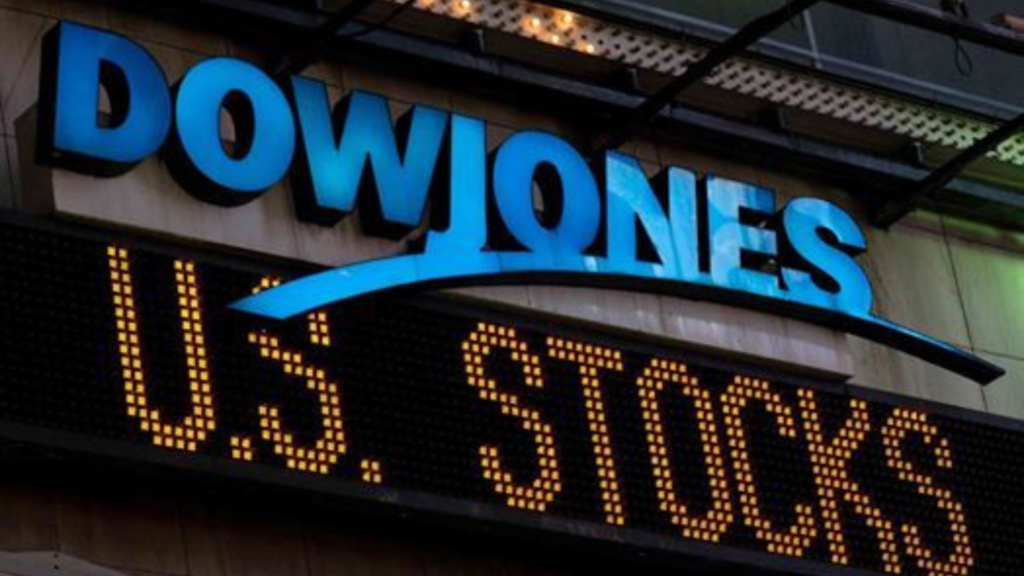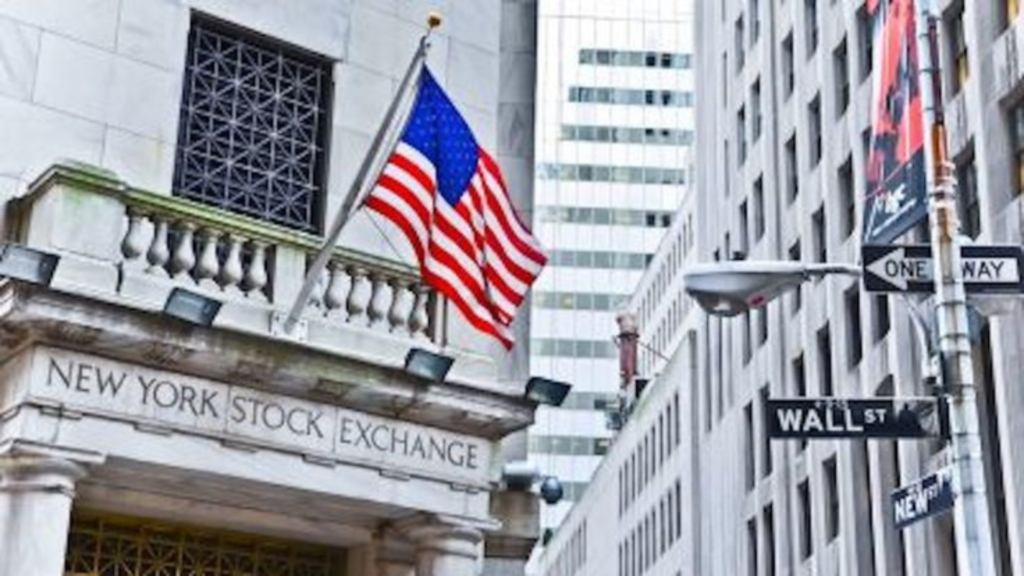The global stock market is like a complex, interconnected web in which even the slightest tremor can have a global impact. Recently, a new report on US jobs data rocked this fragile system, causing a global stock market rout that left analysts and investors scrambling.

What exactly about this job report made such a big impression? And how did it set off a series of events that impacted markets from New York to Tokyo? Let’s examine the details to see how the job situation in a single country might trigger a global market rout.
Why Was There a Global Market Rout?
The global stock market rout was triggered by stronger-than-expected US job data, which initially seemed optimistic but raised concerns among investors. Strong job data indicated an overheating economy, which sparked concerns about rising inflation and the Federal Reserve’s subsequent hike in interest rates.

Higher rates would make borrowing more expensive, which may discourage consumption and investment. Due to worries about the US economy’s potential effects globally, investors started selling off stocks, which triggered a major decline in the global stock index and ripple effects across other global markets.
What Job Predicts the Stock Market?
No single job can predict the stock market with absolute accuracy, but key roles include financial analysts, economists, and market strategists. These professionals use economic indicators, such as job data from the US Bureau of Labor Statistics (BLS), to predict market trends.

Reports such as nonfarm payrolls are key indicators of the economy’s state. Surprisingly, high job data could trigger market turbulence as investors modify their strategies. Although these experts offer insightful analysis, the market’s inherent unpredictability still affects their projections, as evidenced by the recent global market rout.
ALSO READ: Financial Forewarning: Some US Billionaires Sell $11 Billion in Stocks Ahead of Upcoming Election
What Drives the International Market?
A number of factors impact the global market, but US economic data is one of the major drivers. Strong US job data can be a sign of a healthy economy, but they can also raise concerns about inflation and lead to expectations of interest rate hikes. This may lead investors to transfer money from riskier investments, like stocks, to more secure ones, like bonds or gold, which would lower the global stock index.

Furthermore, foreign commerce and currency swings may be impacted by US job data. Although advances in technology and geopolitical events also have a big impact, US economic data continues to have a high influence.
What Jobs Revolve Around the Stock Market?
The stock market supports a range of careers essential to its operation. Stockbrokers facilitate buyers and sellers in trading by providing guidance based on current market trends. To provide insight into market trends, financial analysts study data such as economic indicators and corporate earnings. Portfolio managers monitor investment portfolios and modify plans in response to economic conditions, like job data.

Economists utilize economic trend analysis to forecast market trends, whereas market strategists create investment plans by thoroughly examining data. A prime example of how each role requires fast and accurate information to manage market volatility is the recent impact that job data had on the stock market.
How Did the Stock Market Respond Globally?
The US jobs statistics, which revealed higher-than-expected employment numbers, caused the stock market to react strongly and quickly. As investors expected increased interest rates, major US indices like the Dow Jones, S&P 500, and Nasdaq experienced large declines.

Globally, this decrease was echoed, with indices like the Nikkei 225, DAX, and FTSE 100 all seeing significant declines. A global market rout caused by fears of stricter US monetary policy severely damaged emerging markets as capital outflows surged and the stock market fell even deeper.
U.S. Jobs Data Spurs Widespread Market Declines
The U.S. jobs data report triggered widespread market declines across Asia. The Kospi index in South Korea plunged more than nine percent, the Taiex index in Taiwan lost eight percent, and Singapore, Indonesia, and Thailand experienced two- to three-percent falls.

The FTSE 100 fell 159.05 points, the most in more than a year, in the United Kingdom. The Dow Jones fell more than 600 points, while the S&P 500 Futures fell 140 points, and U.S. equity futures also fell precipitously. The VIX, which gauges market volatility, increased by around 26%.
U.S. Unemployment Claims Beat Expectations
Economists had anticipated 240,000 initial unemployment claims for the week ending August 3, but the actual figure was lower, relieving the recent global market meltdown. This encouraging development comes after a disappointing jobs data report in July that showed just 114,000 new jobs were created, far less than the previous month’s average of 200,000 and much below expectations.

Furthermore, for the week ending July 27, continuing claims increased to 1.88 million, a nine-week run at this level. Despite volatility and frequent revisions, weekly jobless claims are still quite close to pre-pandemic levels.
Wall Street Rebounds Amid Fears of Economic Slowdown
The most recent jobs data comes as Wall Street attempts to bounce back from a substantial market decline that was mostly brought on by the underwhelming July jobs report. Fears of a possible hard landing for the US economy, where attempts to bring inflation down to the Federal Reserve’s 2% target would hurt the labor market, increased as unemployment jumped from 4.1% to 4.3%.

Due to this uncertainty, the Dow fell more than 2.6%, and the Nasdaq fell 6%, sending both markets into correction territory.
ALSO READ: Inflation in the U.S. Falls by 0.1% With a Similar CPI Drop
The Impact on the Global Stock Index
The decline brought on by US jobs data was quickly reflected in the global stock index, which serves as a benchmark for regional stock market performance. Both the FTSE All-World Index, which includes both developed and emerging economies, and the MSCI World Index, which covers 23 developed markets, had notable drops.

The rapid decline in regional indices like the Euro Stoxx 50 and the Hang Seng Index also served as evidence of the interdependence of global markets. These indices provide a quick look at market performance and show how quickly sentiment can shift based on economic data from a single country.
The Power of Jobs Data in a Globalized World
The recent global market meltdown, which was triggered by US jobs data, highlights how intricately linked our globalized world is. A single report has the power to cause significant market reactions, emphasizing the need for investors to stay informed.

Jobs data is an indicator of the health of the economy, impacting both market sentiment and monetary policy. It is evident that US economic data has broad ramifications, influencing financial futures globally and emphasizing the significance of comprehending these dynamics as governments and central banks react to these economic signals.
What’s Next for the Global Stock Market?
What the US Federal Reserve does in response to the jobs report will determine how the global stock market performs going forward as it rebounds from its recent downturn. Market volatility may persist if the Fed hikes interest rates because investors may need to make portfolio adjustments.

Economic statistics from other economies, like China and the EU, will also influence the market’s path. If there are indications of an economic slowdown or rising inflation, more sell-offs may occur. Technological disruptions, geopolitical tensions, and trade negotiations will also play a role, requiring investors to remain vigilant and adaptable.
You Might Also Like:
This Expert Tip Is the Best Way To Cut Your Wedding Guest List
Here’s What the Failed Expanded Child Tax Credit Means for Families in the US
A Shuttered Power Plant in Michigan Could Pave the Way for More Nuclear Energy in the U.S.
‘The Summer Job Is Back’: Teens Join the Workforce Amid Higher Wages and Perks From Employers
Couple Narrates Why They Stopped Renting Their House as an Airbnb After 15 Years in the Business

